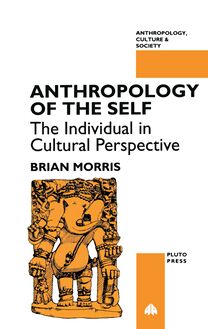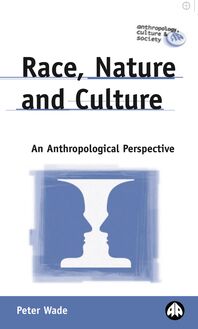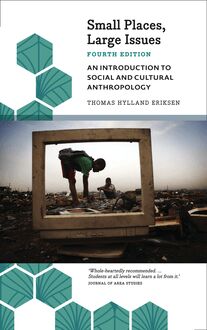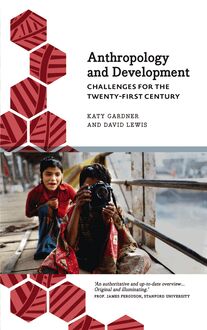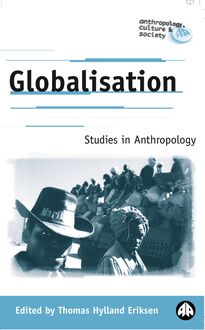-
 Univers
Univers
-
 Ebooks
Ebooks
-
 Livres audio
Livres audio
-
 Presse
Presse
-
 Podcasts
Podcasts
-
 BD
BD
-
 Documents
Documents
-
- Cours
- Révisions
- Ressources pédagogiques
- Sciences de l’éducation
- Manuels scolaires
- Langues
- Travaux de classe
- Annales de BEP
- Etudes supérieures
- Maternelle et primaire
- Fiches de lecture
- Orientation scolaire
- Méthodologie
- Corrigés de devoir
- Annales d’examens et concours
- Annales du bac
- Annales du brevet
- Rapports de stage
La lecture à portée de main
Vous pourrez modifier la taille du texte de cet ouvrage
Découvre YouScribe en t'inscrivant gratuitement
Je m'inscrisDécouvre YouScribe en t'inscrivant gratuitement
Je m'inscrisEn savoir plus
Vous pourrez modifier la taille du texte de cet ouvrage
En savoir plus

Description
This book engages with nearly two decades of continuity and change in the development industry. In particular, it argues that while the world of international development has expanded since the 1990s, it has become more rigidly technocratic. The authors insist on a focus upon the core anthropological issues surrounding poverty and inequality, and thus sharply criticise what are perceived as problems in the field.
Anthropology and Development is a completely rewritten edition of the best-selling and critically acclaimed Anthropology, Development and the Post-Modern Challenge (1996). It serves as both an innovative reformulation of the field, as well as a textbook for many undergraduate and graduate courses at leading international universities.
Series Preface
Preface
Acknowledgements
Glossary
Acronyms
Prelude: Development, Post-Development and More Development?
1. Understanding Development: Theory and Practice into the Twenty-First Century
2. Applying Anthropology
3. The Anthropology of Development
4. Anthropologists in Development: Access, Effects and Control
5. When Good Ideas Turn Bad: The Dominant Discourse Bites Back
Conclusion: Anthropology, Development and Twenty-First Century Challenges
Notes
Bibliography
Index
Sujets
Informations
| Publié par | Pluto Press |
| Date de parution | 20 février 2015 |
| Nombre de lectures | 0 |
| EAN13 | 9781783712762 |
| Langue | English |
Informations légales : prix de location à la page 0,1650€. Cette information est donnée uniquement à titre indicatif conformément à la législation en vigueur.
Extrait
Anthropology and Development
Anthropology, Culture and Society
Series Editors:
Professor Vered Amit, Concordia University
and
Professor Christina Garsten, Stockholm University
Recent titles:
Becoming Arab in London: Performativity and the Undoing of Identity R AMY M.K. A LY
Community, Cosmopolitanism and the Problem of Human Commonality
V ERED A MIT AND N IGEL R APPORT
Home Spaces, Street Styles: Contesting Power and Identity in a South African City L ESLIE J. B ANK
In Foreign Fields: The Politics and Experiences of Transnational Sport Migration T HOMAS F. C ARTER
Dream Zones: Anticipating Capitalism and Development in India J AMIE C ROSS
A World of Insecurity: Anthropological Perspectives on Human Security E DITED BY T HOMAS E RIKSEN , E LLEN B AL AND O SCAR S ALEMINK
A History of Anthropology Second Edition T HOMAS H YLLAND E RIKSEN AND F INN S IVERT N IELSEN
Ethnicity and Nationalism: Anthropological Perspectives Third Edition T HOMAS H YLLAND E RIKSEN
Small Places, Large Issues: An Introduction to Social and Cultural Anthropology Third Edition T HOMAS H YLLAND E RIKSEN
Discordant Development: Global Capitalism and the Struggle for Connection in Bangladesh K ATY G ARDNER
Organisational Anthropology: Doing Ethnography in and Among Complex Organisations E DITED BY C HRISTINA G ARSTEN AND A NETTE N YQVIST
Border Watch: Cultures of Immigration, Detention and Control A LEXANDRA H ALL
Anthropology’s World: Life in a Twenty-First Century Discipline U LF H ANNERZ
Humans and Other Animals Cross-cultural Perspectives on Human-Animal Interactions S AMANTHA H URN
Flip-Flop: A Journey Through Globalisation’s Backroads C AROLINE K NOWLES
The Anthropology of Security: Perspectives from the Frontline of Policing, Counter-Terrorism and Border Control E DITED BY M ARK M AGUIRE , C ATARINA F ROIS AND N ILS Z URAWSKI
The Gloss of Harmony: The Politics of Policy Making in Multilateral Organisations E DITED BY B IRGIT M ÜLLER
Contesting Publics: Feminism, Activism, Ethnography L YNNE P HILLIPS AND S ALLY C OLE
Food For Change: The Politics and Values of Social Movements J EFF P RATT AND P ETER L UETCHFORD
Checkpoint, Temple, Church and Mosque: A Collaborative Ethnography of War and Peace J ONATHAN S PENCER , J ONATHAN G OODHAND , S HAHUL H ASBULLAH , B ART K LEM , B ENEDIKT K ORF AND K ALINGA T UDOR S ILVA
Race and Ethnicity in Latin America Second Edition P ETER W ADE
Race and Sex in Latin America P ETER W ADE
The Capability of Places: Methods for Modelling Community Response to Intrusion and Change S ANDRA W ALLMAN
The Making of an African Working Class: Politics, Law, and Cultural Protest in the Manual Workers’ Union of Botswana P NINA W ERBNER
Anthropology and Development
Challenges for the Twenty-First Century
Katy Gardner and David Lewis
First published 2015 by Pluto Press
345 Archway Road, London N6 5AA
www.plutobooks.com
Copyright © Katy Gardner and David Lewis 2015
The right of Katy Gardner and David Lewis to be identified as the authors of this work has been asserted by them in accordance with the Copyright, Designs and Patents Act 1988.
British Library Cataloguing in Publication Data
A catalogue record for this book is available from the British Library
ISBN 978 0 7453 3365 6 Hardback
ISBN 978 0 7453 3364 9 Paperback
ISBN 978 1 7837 1275 5 PDF eBook
ISBN 978 1 7837 1277 9 Kindle eBook
ISBN 978 1 7837 1276 2 EPUB eBook
Library of Congress Cataloging in Publication Data applied for
This book is printed on paper suitable for recycling and made from fully managed and sustained forest sources. Logging, pulping and manufacturing processes are expected to conform to the environmental standards of the country of origin.
10 9 8 7 6 5 4 3 2 1
Typeset by Stanford DTP Services, Northampton, England
Text design by Melanie Patrick
Simultaneously printed digitally by CPI Antony Rowe, Chippenham, UK and Edwards Bros in the United States of America
Contents
Series Preface
Preface
Acknowledgements
Glossary
Development jargon
Anthropological jargon
Acronyms
Prelude: Development, Post-Development and More Development?
1.
Understanding Development: Theory and Practice into the Twenty-First Century
Development: history and meanings
The ‘aid industry’
Theories of development
Global changes and continuities
Anthropology and post-development: into the twenty-first century
2.
Applying Anthropology
Anthropology, cultural relativism and social change
The evolution of applied anthropology
Development as an applied field of anthropology
Dilemmas of applied work
Engaged anthropology in the twenty-first century
Dissolving the boundaries?
3.
The Anthropology of Development
Anthropologists, change and development: the view from 1996
The anthropology of development from 2000 onwards: new agendas, old questions
4.
Anthropologists in Development: Access, Effects and Control
Access
Effects
Control
Conclusion
5.
When Good Ideas Turn Bad: The Dominant Discourse Bites Back
When good ideas go bad: the rise and fall of politicised development
Ethnography, participation and empowerment, round two
Conclusion: Anthropology, Development and Twenty-First-Century Challenges
Control, access, effects
Notes
Bibliography
Index
Series Preface
Anthropology is a discipline based upon in-depth ethnographic works that deal with wider theoretical issues in the context of particular, local conditions – to paraphrase an important volume from the series: large issues explored in small places . This series has a particular mission: to publish work that moves away from an old-style descriptive ethnography that is strongly area-studies oriented and offer genuine theoretical arguments that are of interest to a much wider readership, but which are nevertheless located and grounded in solid ethnographic research. If anthropology is to argue itself a place in the contemporary intellectual world, then it must surely be through such research.
We start from the question: ‘What can this ethnographic material tell us about the bigger theoretical issues that concern the social sciences?’ rather than ‘What can these theoretical ideas tell us about the ethnographic context?’ Put this way round, such work becomes about large issues, set in a (relatively) small place, rather than detailed description of a small place for its own sake. As Clifford Geertz once said, ‘Anthropologists don’t study villages; they study in villages.’
By place, we mean not only geographical locale, but also other types of ‘place’ – within political, economic, religious or other social systems. We therefore publish work based on ethnography within political and religious movements, occupational or class groups, among youth, development agencies and nationalist movements; but also work that is more thematically based – on kinship, landscape, the state, violence, corruption, the self. The series publishes four kinds of volume: ethnographic monographs; comparative texts; edited collections; and shorter, polemical essays.
We publish work from all traditions of anthropology, and all parts of the world, which combines theoretical debate with empirical evidence to demonstrate anthropology’s unique position in contemporary scholarship and the contemporary world.
Professor Vered Amit Professor Christina Garsten
Preface
We originally chose to write this book for two main reasons. The first was that during the early 1990s we could find no single text that engaged with the various histories, opinions and debates that had emerged during the relationships between development people and anthropologists. While Lucy Mair’s book Anthropology and Development (1984) was an invaluable text, it had been written well before both subjects embarked on periods of intensive reflection informed by the rise of postmodernist theory. We therefore hoped to move debates forward in a manner that could engage researchers, students and practitioners. Reviewers were on the whole kind about the book, and this made us feel that our work had at least gone some way towards achieving our intention.
The second reason was more personal. By the middle of the 1990s both of us were interested in trying to make sense of our disparate experiences to date working as anthropologists, researchers and development practitioners – in the field, at universities and research institutes, behind desks in development agencies and within interdisciplinary consultancy teams. Katy Gardner and David Lewis had both studied social anthropology as a first degree in the early 1980s. Katy Gardner’s PhD research involved fieldwork in a Bangladeshi migrant village. After completing her dissertation, she spent a year working for the British Overseas Development Administration (ODA) as an assistant social adviser. During this period she was involved in short visits to various projects in South Asia as well as administrative work in London. Since leaving the ODA Katy has worked as a full-time lecturer in anthropology at the Universities of Kent and Sussex (where she worked from 1993 to 2013, becoming Professor of Anthropology in 2009). Earlier in her career she was also involved in a range of consultancy work for both private and governmental agencies. She is the author of Songs at the River’s Edge: Stories from a Bangladeshi Village (Virago, 1991); Global Migrants, Local Lives: Travel and Transformation in Rural Bangladesh (Oxford University Press, 1995) and Age, Narrative and Migration: Life History and the Life Course amongst Bengali Elders in London (Berg, 2002). In 2013 she became professor of anthropology in the Department of Anthropology at the London School of Economics and Political Science. Katy Gardner’s most recent book is Discordant Development: Global Capitalism and the Struggle for Connection in Bangl
-
 Univers
Univers
-
 Ebooks
Ebooks
-
 Livres audio
Livres audio
-
 Presse
Presse
-
 Podcasts
Podcasts
-
 BD
BD
-
 Documents
Documents
-
Jeunesse
-
Littérature
-
Ressources professionnelles
-
Santé et bien-être
-
Savoirs
-
Education
-
Loisirs et hobbies
-
Art, musique et cinéma
-
Actualité et débat de société
-
Jeunesse
-
Littérature
-
Ressources professionnelles
-
Santé et bien-être
-
Savoirs
-
Education
-
Loisirs et hobbies
-
Art, musique et cinéma
-
Actualité et débat de société
-
Actualités
-
Lifestyle
-
Presse jeunesse
-
Presse professionnelle
-
Pratique
-
Presse sportive
-
Presse internationale
-
Culture & Médias
-
Action et Aventures
-
Science-fiction et Fantasy
-
Société
-
Jeunesse
-
Littérature
-
Ressources professionnelles
-
Santé et bien-être
-
Savoirs
-
Education
-
Loisirs et hobbies
-
Art, musique et cinéma
-
Actualité et débat de société
- Cours
- Révisions
- Ressources pédagogiques
- Sciences de l’éducation
- Manuels scolaires
- Langues
- Travaux de classe
- Annales de BEP
- Etudes supérieures
- Maternelle et primaire
- Fiches de lecture
- Orientation scolaire
- Méthodologie
- Corrigés de devoir
- Annales d’examens et concours
- Annales du bac
- Annales du brevet
- Rapports de stage
